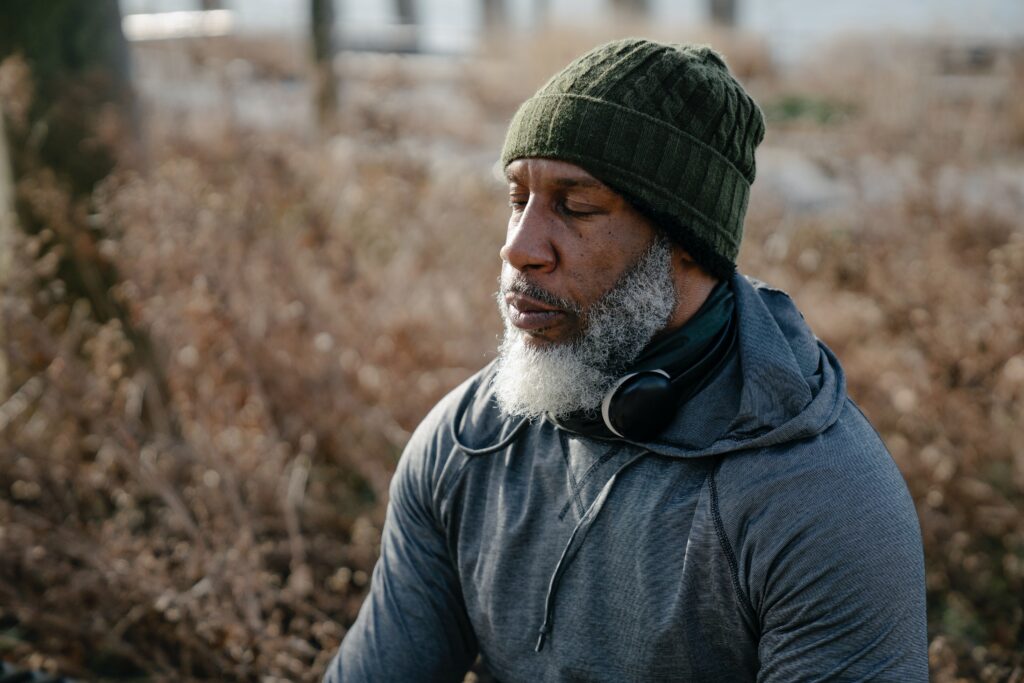Let’s Talk About Testosterone
Let’s have a chat about something that’s as natural as the sun rising and setting—testosterone. It’s not something we often bring up when we’re talking about the big game or our latest accomplishment. But guess what? It’s a pretty significant player in how we feel and function. It’s all about our overall vigor, our wellbeing, and even how we age.

Testosterone: More Than Just a Sex Hormone
Testosterone isn’t just about muscles or matters of the bedroom, it’s the unsung hero behind the scenes of our bodies. It’s the oil that keeps the engine of our body running smoothly.
It does the heavy lifting in areas like mood regulation and cognitive function. So, when levels start to drop, you might feel a little out of sorts. And that’s perfectly natural.
Testosterone Over Time
Here’s the thing, guys, our testosterone levels hit their high point when we’re in our late teens. They then take a bit of a breather and even out for a while before they start to slowly decline, usually around our 30s. But sometimes, for some of us, this dip can be a bit steep, leading to what is known as low testosterone or “Low T.”
Spotting the Signs of Low Testosterone
We all have those days when we feel like we’re not firing on all cylinders. But if days like this are more often than not, it might be a sign to sit down with your doctor for a chat:

- Decline in sexual desire or activity: We’re not talking about the expected mild decline as we age. If your desire takes a significant dip, that might be a sign.
- Feeling fatigued: If you’re feeling like you’re always running on empty or lack motivation, it might be more than just a busy schedule or a few restless nights.
- Muscle mass and strength reduction: If your workout isn’t showing results like it used to, Low T could be playing a part.
- Emotional changes: If you’re feeling down, depressed, or irritable, it could be due to low testosterone.
- Concentration and memory problems: Cognitive difficulties could also indicate low testosterone.
Boosting Your T-levels Naturally

- Get Regular Exercise: Strength and high-intensity interval training (HIIT) can give your testosterone a welcome boost.
- Eat a Balanced Diet: Protein, healthy fats, and a low intake of processed foods can support testosterone production.
- Maintain Healthy Weight: Being overweight is often linked with low testosterone. Maintaining a healthy weight can help manage Low T.
- Get Quality Sleep: Good sleep isn’t just great for your mood—it’s essential for hormone production, including testosterone.
- Limit Alcohol and Avoid Illicit Substances: Both can mess with your testosterone levels and pose other health risks.
- Manage Stress Constructively: Chronic stress can disrupt your hormones. Engage in stress-busting activities like yoga, meditation, or a quiet walk in the park.
The Key Takeaway
Testosterone is not just about muscles or virility—it’s about feeling healthy, lively, and in sync with your body.
If you’re experiencing any Low Testosterone symptoms, remember it’s okay to reach out to your healthcare provider. You’re not alone on this journey, and there are resources available to help.
This isn’t just about ‘T’—it’s about taking care of your health as we navigate this stage of life together. So, let’s take action and continue living our best lives!